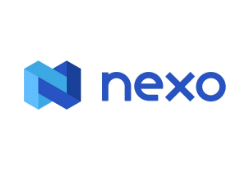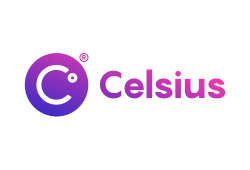Best Bitcoin Lending Sites
If you're looking for a way to make extra money by having your crypto portfolio work for you, consider lending out some of your assets. Alternatively, you might need cash, but you are reluctant to liquidate your cryptocurrency positions. That’s where using your digital assets as collateral comes in.
We’ve found some of the most prominent Bitcoin lending sites that can help you get started.
Best Bitcoin Lenders of July 2025
Nexo
- More than $6 billion in credit processed and over 4 million users
- $775 million insurance policy
- Nexo Booster
Crypto.com
- More affordable lending options with CRO staking
- Flexible repayment options for the duration of the loan
- Instant funds
Celsius Network
- More than $8 billion in loans processed
- 0% APR on 25% LTV loans
- Mobile apps and API integrations
YouHodler
- Collateral in multiple cryptocurrencies
- Great application and crypto wallet
- BTC, ETH, and a comprehensive selection of altcoins
BTCPop
- Staking platform
- Comprehensive options for advanced users
- Great for investors
Top 5 Bitcoin Lending Platforms - Our Picks for 2025:
Nexo - Best range of services
Crypto.com - Best for security
Celsius Network - Best for lowest fees
YouHodler - Best for flexible loans
BTCPop - Best for investors
How To Choose a Bitcoin Lender
With the evolving cryptocurrency market, it’s becoming easier to find cryptocurrency exchanges that offer a range of financial services, including lending. There are multiple options for borrowers and lenders, and here are just some of the factors you need to consider before deciding which company is the best fit for your funds.
APR and APY
Crypto loan rates and yields from interest accounts are much more competitive than those from traditional banks.
The annual percentage rate (APR) is the yearly cost of borrowing money. For a loan with crypto collateral, it may be as low as 0% for short-term loans but is rarely more than 13%. In contrast, the average APR for a credit card is currently 20.17%.
The situation with annual percentage yield (APY) on savings accounts isn’t much better. According to the FDIC, the national average APY is 0.43% for savings accounts. With a crypto loan, the APY is generally between 5% and 15% and varies depending on the cryptocurrency.
Think about how this will affect your tax obligations as well. The IRS regards cryptocurrency as property, so if you’re earning interest on a loan denominated in crypto, you will be liable for capital gains tax. There are tax software solutions that include crypto in their calculations and can help you stay on top of your tax obligations.
Loan-to-Value Ratio
Most loans have a loan-to-value (LTV) ratio that is less than 100% of the cryptocurrency's value. That is, the value of the loan cannot exceed a certain percentage of the underlying asset.
For example, a platform offers crypto-backed loans with LTVs of up to 50%. This means you can take out a $10,000 loan if you have $20,000 worth of crypto as collateral.
Keep in mind that the LTVs for loans with fiat currency as collateral are generally much higher.
Wallet Security and Storage
An important consideration when choosing a lender is the security of the platform and its wallets. Make sure that the platform stores the majority of its crypto offline in what is known as "cold storage," as your assets will be kept there for the duration of the loan.
Most platforms use some of the prominent crypto and bitcoin wallets to store their offline assets, such as Ledger or Trezor.






